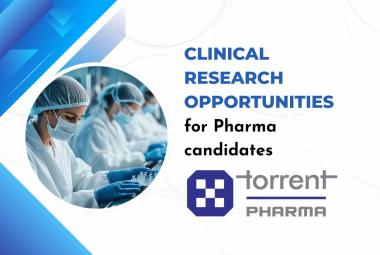Abeona Therapeutics Inc.a leading clinical-stage biopharmaceutical company focused on developing novel gene therapies for life-threatening rare diseases, announced updated data from the ongoing gene therapy clinical trial for Sanfilippo syndrome Type A (MPS IIIA) at the American Society Gene and Cell Therapy (ASGCT) 20th Annual Meeting. The ongoing Phase 1/2 trial for ABO-102 (AAV-SGSH) is a first-in-man clinical trial utilizing a single intravenous injection of AAV gene therapy for subjects with Sanfilippo syndrome (MPS IIIA), a rare autosomal-recessive lysosomal storage disease.
[adsense:336x280:8701650588]
“Abeona continues to advance gene therapy for MPS IIIA patients and we are excited about the positive dose response in the CNS seen in Cohort 2. The observation of a dose response supports our clinical approach, and we are encouraged to observe further reductions in central nervous system (CNS) heparan sulfate, reduction in liver volume, and preliminary evidence of slowed neurocognitive decline, are very encouraging. We look forward to accelerating enrollment with the recently initiated global sites (Spain and Australia) and reporting additional clinical data in the ABO-102 global MPS IIIA trial later this year,” stated Timothy J. Miller, Ph.D., President and CEO of Abeona Therapeutics.
Per the design of the clinical trial, subjects received a single, intravenous injection of ABO-102 to deliver the AAV viral vector systematically throughout the body to introduce a corrective copy of the gene that underlies the cause of the MPS IIIA disease. Subjects are evaluated at multiple time points post-injection for safety assessments and initial signals of biopotency and clinical activity, which suggest that ABO-102 successfully reached target tissues throughout the body, including the central nervous system. Highlights reported data on five (n=3 Cohort 1, n=2 Cohort 2) out of the six patients treated to date in the gene therapy trial included:
Biopotency: positive dose response observed in Cohort 2.
--At 30 days post-injection, two patients in the Cohort 2 demonstrated 60.7%(+/- 8.8%) reduction in cerebral spinal fluid (CSF) heparan sulfate (HS).
Hepatosplenomegaly: consistent reduction in liver volume observed.
--At 30 days post-injection, Cohort 2 subjects demonstrated reductions in liver volumes of 14.81% (+/- 1.2%).
--The natural history study in 25 subjects with MPS III (Truxal et. al., 2016, Mol. Genet. Metab.) demonstrated that subjects had increased liver volumes averaging 116% at baseline that did not change over a year of follow-up.
Cognitive Assessments: evidence of cognitive stabilization at six months in Cohort 1.
-- Cognitive assessments, taken at baseline, at the six-month timepoint for the Cohort 1 (n=3), subjects showed evidence of stabilization or improvement in the Leiter-R non-verbal IQ and Vineland (adaptive behavior) scales.
-- Cognitive assessments are taken at six-month and twelve-month follow-up visits.
-- Leiter Nonverbal IQ assessments in Cohort 1 subjects demonstrated stabilized or improved scores at six-months post-injection. Notably, one subject improved +10 (+/-6) points, while age-matched controls in the Natural History study would have predicted a decrease of -11.1 (+/-2.7) points over 6 months.
--Vineland assessments in Cohort 1 at six months post-injection suggest stabilization in adaptive behavior scores.
Safety: well-tolerated in all subjects through 1100 days cumulative post-injection.
-- No serious adverse events (SAEs) reported in subjects in either cohort receiving ABO-102 (Cohort 1: 5E12 vg/kg and Cohort 2: 1E13 vg/kg).
“We remain encouraged by signs of tolerability and biological effects that we have observed in Cohort 1 and in the initial two subjects of Cohort 2,” stated Kevin M. Flanigan, M.D., principal investigator, Director of the Center for Gene Therapy at Nationwide Children’s Hospital and Professor of Pediatrics and Neurology at The Ohio State University College of Medicine. “We are pleased to see decreases in CSF HS compared to the Cohort 1 at 30 days post-injection, and we look forward to enrolling additional high-dose patients.”
The ongoing Phase 1/2 clinical trial, which has received FastTrack designation, Orphan Product Designation, and Rare Pediatric Disease designation by the FDA, is designed to evaluate safety and efficacy of ABO-102 in patients with MPS IIIA. The global clinical study is supported by a 25-subject MPS III Natural History Study, which included potential efficacy assessments consisting of neurocognitive evaluations, biochemical assays and MRI data generated over one year of follow-up assessments.













